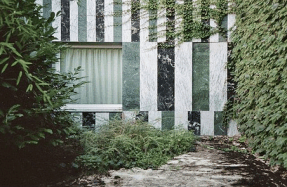ARCHITECTURE AND THE CITY IN THE AGE OF EMERGENCY
SPACE
Cho Jaewon
principal, 0_1 Studio
Choi Doin
executive director, metaa
Hwang Doojin
principal, Doojin Hwang Architects
Hwang Jie-Eun
professor, University of Seoul
Cho Jaewon is the principal of 0_1 Studio. She has worked on projects that explore and realise social spaces that introduce appropriate and sustainable values to lives of individuals and community. Her recent works include 00 Ground_001 and the co-working office DreamPlus. She won the Jeju Architecture Award with the project Jeju Stone House Floating L in 2010, the Public Design Award for the Outdoor Theater in Daegu in 2011, and the Seoul Architecture Award for the Co-working space CoW&DoG in 2016.
Choi Doin majored in arts management, and he has fostered awareness for matters including urban cultural space and environment, the singularity of regional characteristics and cultural growth, and creative industrial ecosystems through practical research, consultation, and design following the themes of culture, space, and the urban city at metaa. Since 2015, he has managed the consultation and strong point gap design for the industrial revitalisation of the Sewoon Commercial District, and he is currently working as the co-director of the Sewoon Collaboration Support Center. More recently, he has also participated in the Tongyeong Closed Shipyard Masterplan and the Jeju committee for fourth. He also oversaw the Korean translation of Charles Landry’s Creative City Making.
Hwang Doojin was born in Seoul, Korea in 1963. He studied architecture at Seoul National University and Yale University. Having worked in Korea, Japan and the US, he founded his own practice, Doojin Hwang Architects, in 2000. Hwang sees architecture as a dynamic dialogue between the programme and milieu, with geometry as the mediator. This approach has made it possible for him to deal with both contemporary and traditional projects. His architecture seeks to surpass simple formalism. Hwang has authored a number of books on architecture and urbanism; he has also lectured and exhibited extensively both in Korea and abroad.
Hwang Jie-Eun is a professor at University of Seoul Department of Architecture, and currently directs the Beta City Center at Sewoon Campus and Sewoon Collaboration Support Center. Her research interests include spatial information representation, digital tectonics, design media and interfaces, and open data. As an educator, new media experiments and alternative education are also present challenges and interests. She has pursued various research projects, including a digital twin based urban regeneration platform, participatory mobile augmented reality content, a spatio-temporal timeline system for monitoring public space, and monitoring index development for UNESCO heritage. She co-curated Production City at Seoul Biennale of Architecture and Urbanism 2017.
Perceptions of Disasters
While the situation continues to change every moment leading to this roundtable discussion, our present ‘non-contact’ situation forces us to raise existential questions of our lives and the environment. For this discussion, our aim is not to debate in order to arrive at solutions, but to observe, record, and develop necessary questions that we will have to ask ourselves. First, although we have come to terms with this pandemic situation as a ‘disaster’, it also seems that nowadays disasters occur quite frequently. For example, we have suffered hurricanes, heat waves, terrorist attacks, wild fires, earthquakes, and the current pandemic—and in retrospect, I wonder if we can think about how disasters may have come to be normalised, and how the nature of such normalised disasters are changing – or will change – our lives. While many disasters are by their character events that cannot always be prevented, despite all efforts to predict and calculate, one question remains; how can we continue to respond if such
You’re reading a preview, subscribe to read more.
Start your free 30 days





